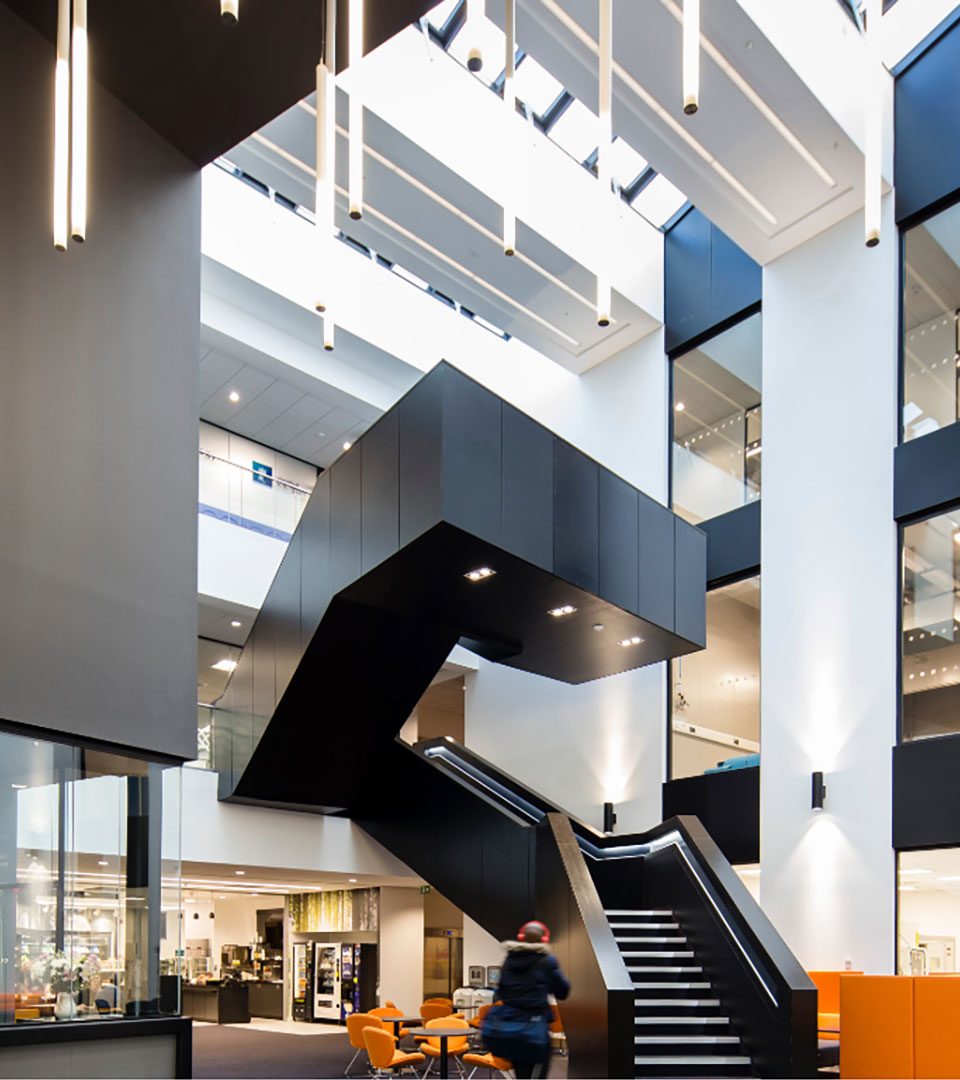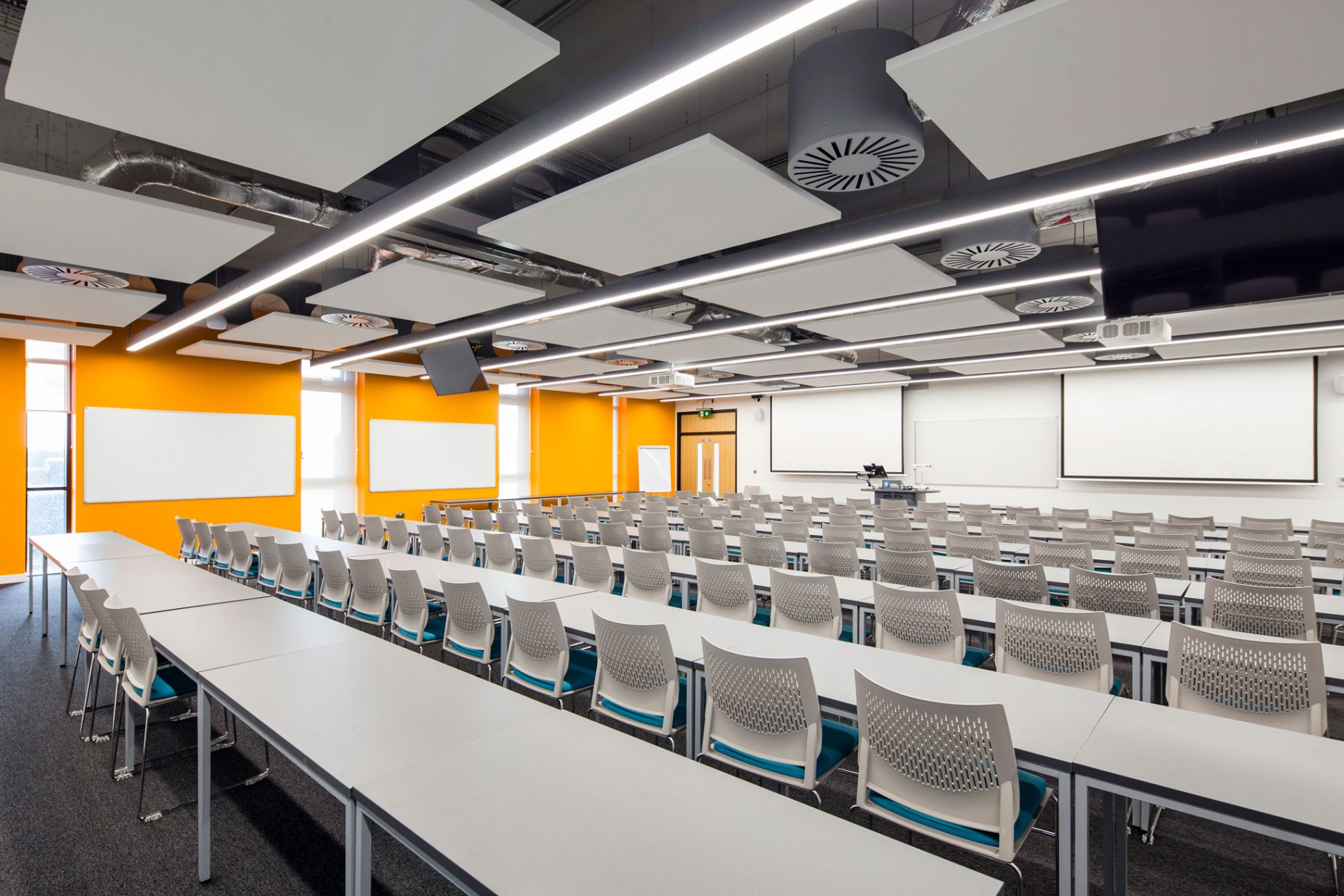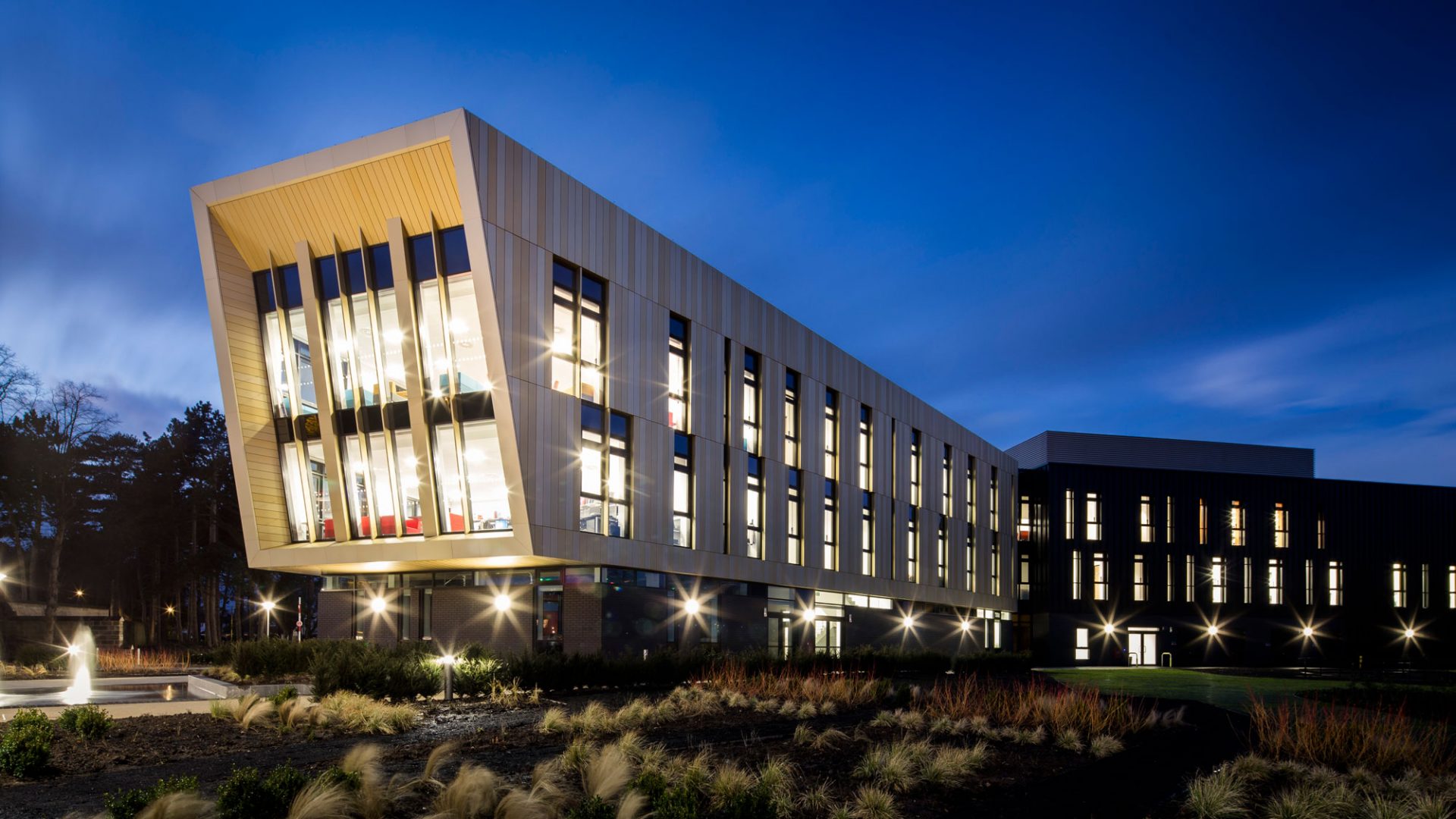In manufacturing, precision is everything. And a big part of achieving that precision is having the perfect environment to work in.


That’s what the University of Nottingham set out to create when it built its Advanced Manufacturing Building – a £24 million, 9,000 square-metre research facility containing cutting-edge laboratories and specialist teaching facilities.
The Derry difference
From the outset, Derry Ltd engaged heavily with the university faculty, surveying existing equipment, facilities, and operational requirements to fully understand the building’s needs.
Once fully immersed, Derry Ltd was able to provide a full MEP package, including but not limited to laboratory-specific hot and cold water services, drainage systems, heating and cooling systems, lighting, fibre optic and IT cabling, security systems, and fire safety features.
Derry Ltd also played a key role in the co-ordination and implementation of packages procured directly by the contractor, including specialist gasses and siphonic rainwater installations.
And, thanks to our understanding of sustainable energy, we were able to propose a wealth of alternative solutions for the Main Workshop that would dramatically reduce the facility’s operational costs.
From robots to Rolls Royce
When Siemens UK CEO, Juergen Maier opened the building in December 2018, he described it as a facility that would “put the region, and indeed the country at the cutting edge of digital manufacturing.”
Today, researchers from the University’s Institute of Advanced Manufacturing are experimenting with a new range of ‘robot mechanics’ that will transform the maintenance of Rolls Royce jet engines. While others are using the latest research in 3D printing, artificial intelligence, and collaborative robotics for a wide variety of use-cases – from the design of customised aircraft to the creation of allergen-free foods.
Services:
- HV/LV Electrical Installations
- Power Generation & Standby Power Systems
- UPS Systems
- Standby Generators
- PV Systems
- Electric Vehicle Charging
- LV Power Distribution
- Small Power Systems
- Lighting and Emergency Lighting
- Feature Lighting
- External Lighting
- Lighting Control Systems
- Lightning Protection & Earthing
- Fire Alarm Systems
- CCTV Systems
- Intruder Alarm
- Access Control
- Intercom Systems
- Integrated Security Systems
- Emergency Voice Communication Systems
- Assistance / Nurse Call Alarm Systems
- Assisted Hearing Systems
- Data Transmission Systems
- Television & Audio Visual Systems
“Derry Ltd’s proactive approach in regard to information gathering, design development and in particular their expertise in 3D design and coordination of the environment enabled key areas of the building to be closely understood and developed between GFT, structural and architectural teams enabling us all to deliver a project that the University of Nottingham are delighted with”.
Tim Hubner, Project Manager – G F Tomlinson
